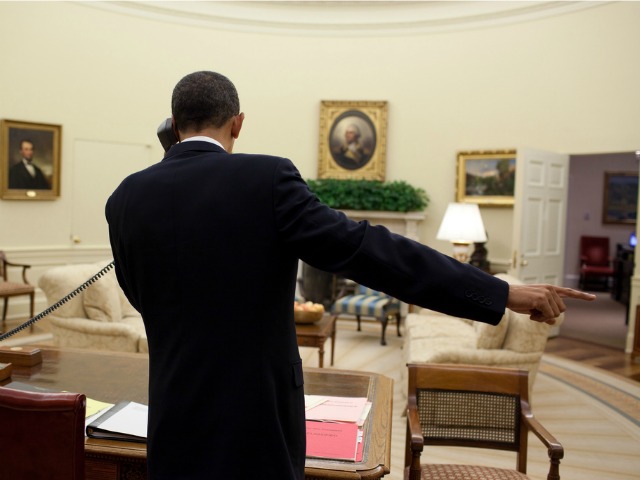“It is my duty to see the laws executed: to permit them to be trampled with impunity would be repugnant” to that duty.
–President George Washington
“I’ve got a pen and I’ve got a phone. And I can use that pen to sign executive orders and take executive actions and administrative actions…”
–President Barack Obama
Chafing under the weight of low approval ratings and having lost the trust of a majority of Americans due in part to his serial deceptions about his signature health care law, President Obama will reportedly try during the State of the Union address to resurrect his second term by pledging unilateral executive action in service of his policy agenda. As Obama said in last year’s SOTU, if Congress will not bend to his wishes, he will simply act on his own.
In a number of policy areas ranging from welfare reform to illegal immigration to ObamaCare, the president has already defaulted on his duty under Article II, Section 3 of the Constitution to “take care that the laws be faithfully executed.” Since Congress has yet to check him and since the media has given him a free pass on his lawlessness, the president probably (and perhaps accurately) feels that he has little to lose by striking this posture. From wage controls to additional ObamaCare waivers to legalizing individuals illegally in the country, the president could potentially force into effect hugely consequential changes without any firm basis in law.
By choosing this course, the president is doing great damage to the constitutional system. If the president can act without Congress whenever Congress fails to heed his commands, then the president is law unto himself – and our nation is no longer a nation of laws, but a nation of individual men. As liberal George Washington University Professor Jonathan Turley told the House Judiciary Committee last December, through his conduct the president is “becoming the very danger the Constitution was designed to avoid. That is the concentration of power in every single branch.”
Where does this end? If President Obama can delay parts of ObamaCare, could a newly-sworn in Republican president simply suspend all of ObamaCare? Incredibly, when asked by the Weekly Standard, a number of Democratic senators could not articulate a principled objection to a president simply suspending an entire law by executive fiat. If a future president is frustrated by the refusal of Congress to enact pro-growth tax cuts, could that president order the IRS to limit tax collection to the terms of the president’s tax proposal? Something tells me the same Democrats who tacitly accept the actions of President Obama would not be pleased by such an executive maneuver.
The Founding Fathers understood human nature and thus did not trust any single branch to act without limits. They assumed that individuals in office would attempt to aggrandize power for themselves, and they built a system of constitutional checks to keep each branch in its proper sphere. Indeed, Alexander Hamilton began The Federalist Papers by warning about those who would begin their “career by paying an obsequious court to the people; commencing demagogues, and ending tyrants.” The Founders hoped to see a lot of Washingtons hold power, but they constructed the system assuming there would be far more Obamas.
A number of House members – myself included – have filed various pieces of legislation to reinvigorate the system of constitutional checks and to hold President Obama accountable for his lawlessness. If the president pledges to act without a basis in law, the House leadership must place these various measures on the floor of the House. The erosion of constitutional checks is a serious threat to the liberty of the American people. Congress cannot simply stand by and do nothing.

COMMENTS
Please let us know if you're having issues with commenting.